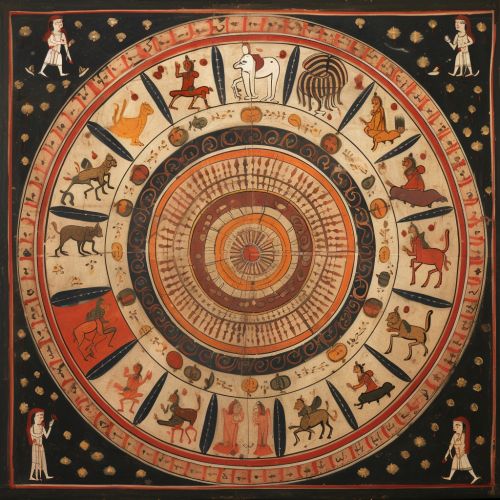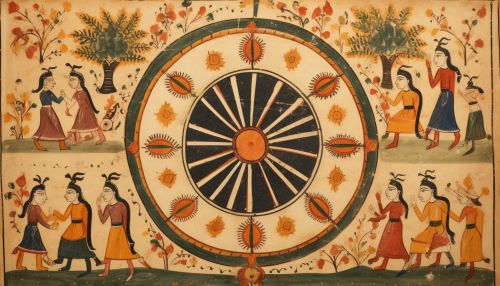Jyotisha
Overview
Jyotisha (or Jyotish from Sanskrit jyotiṣa, from jyóti- "light, heavenly body") is the traditional Hindu system of Astrology, also known as Hindu astrology, Indian astrology, and more recently Vedic astrology. The term Hindu astrology has been in use as the English equivalent of Jyotiṣa since the early 19th century, whereas Vedic astrology is a relatively recent term, entering common usage in the 1970s with self-help publications on Āyurveda or Yoga.


History and Etymology
The word jyotiṣa is derived from the Sanskrit word "jyoti" which means light, and "isha," which means god. Thus, Jyotisha can be roughly translated as the 'Science of Light' or 'Knowledge of the Heavens'. The history of Jyotisha is intertwined with the history of Hinduism, and its development can be traced back to the ancient Vedic Civilization.
Principles of Jyotisha
The principles of Jyotisha are based on the belief that the celestial bodies, including the planets, have an influence on human lives. The position of these celestial bodies at the time of a person's birth, as seen from the birthplace, is recorded in a diagram known as the Horoscope. The horoscope serves as a blueprint of a person's life and is used to predict future events.
Branches of Jyotisha
Jyotisha is divided into three main branches:
- Siddhanta: This is the Indian astronomy which calculates the position of the planets and other celestial bodies.
- Samhita: This branch deals with mundane astrology, predicting important events related to countries such as war, earthquakes, political events, financial positions, electional astrology; house and construction related matters (Vāstu Śāstra), animals, portents, omens etc.
- Hora: This branch, which is also known as predictive astrology, is further divided into several sub-branches.
Techniques in Jyotisha
Jyotisha employs a number of techniques for predicting the future. These include Natal Astrology, Horary Astrology, Muhurta, Tajika Shastra and Nadi Astrology. Each of these techniques uses a different method for prediction, but all are based on the basic principles of Jyotisha.
Influence and Criticism
Jyotisha has had a profound influence on Hindu culture and has been used for centuries to make important life decisions. However, it has also been subject to criticism, particularly from the scientific community, who argue that there is no empirical evidence to support the claims made by Jyotisha.
